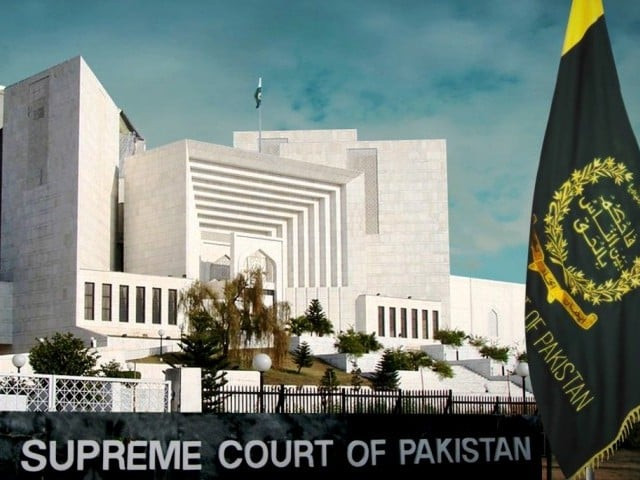Presidential system pleas trigger legal debate
SC has already declared parliamentary form of govt a salient feature of Constitution

Two separate petitions moved in the apex court seeking a presidential form of government in the country have triggered a debate in the legal community on the possibility of the move being given the nod.
The first constitutional petition has been filed by Tahir Aziz Khan, the chairman of the Hum Awam Pakistan – little-known political party -- under Article 184 (3) of the Constitution. The petitioner has requested the apex court to issue directions to the prime minister to hold a referendum for setting up a presidential form of government.
The second petition has been filed by a citizen of Islamabad, Dr Sadiq Ali.
Senior lawyers believe that the move to introduce a presidential system in the country might be shot down by the apex court, which has already declared that the salient features of the Constitution could not be amended and the parliamentary form of government was among them.
In 2015, the majority of Supreme Court judges – while hearing the 21st Constitutional Amendment case – had held that the parliamentary form of government was one of the salient features of the Constitution which could not be amended through a constitutional amendment.
Justice Sheikh Azmat Saeed had authored the verdict which had been endorsed by eight judges. Interestingly, four sitting SC judges -- Chief Justice of Pakistan Gulzar Ahmed, Justice Mushir Alam, Justice Umar Ata Bandial and Justice Maqbool Baqar -- are signatories to this ruling.
According to the verdict, the Constitution contains a scheme reflecting its salient features.
“In an effort to discover such salient features, material outside the Constitution cannot be safely relied upon. The salient features are ascertainable from the Constitution including democracy, the parliamentary form of government and independence of the judiciary,” it read.
It said the powers of the parliament to amend the Constitution were subject to implied limitations and the parliament, in view of Articles 238 and 239, was vested with the power to amend the Constitution as long as the salient features of the Constitution were not repealed, abrogated or substantively altered.
The verdict also noted that the apex court was vested with the jurisdiction to interpret the Constitution in order to ascertain and identify its defining salient features.
“It is equally vested with jurisdiction to examine the vires of any constitutional amendment so as to determine whether any of the salient features of the Constitution have been repealed, abrogated or substantively altered.”
Some legal experts believe that the verdict would be a hurdle in the way of those seeking to introduce a presidential system in the country.
However, one section of lawyers believes that the court’s verdict is a conflicting one.
“It says democracy is a salient feature of the Constitution but also declares that the parliamentary system is also a salient feature of the Constitution. In a democracy, people have the option to choose what kind of system they want to adopt for governance,” said a legal expert.
However, Barrister Ayesha Siddique Khan said the presidential system ensured separation of powers but at the cost of compromising on democracy and the executive’s accountability to the parliament.
“The solution is not to introduce a presidential system but to strengthen the parliamentary democracy through local bodies, transparent electoral process and greater political participation,” she added.
The Pakistan Bar Council and major political parties especially the PPP are expected to resist any move to impose a presidential system.


















COMMENTS
Comments are moderated and generally will be posted if they are on-topic and not abusive.
For more information, please see our Comments FAQ